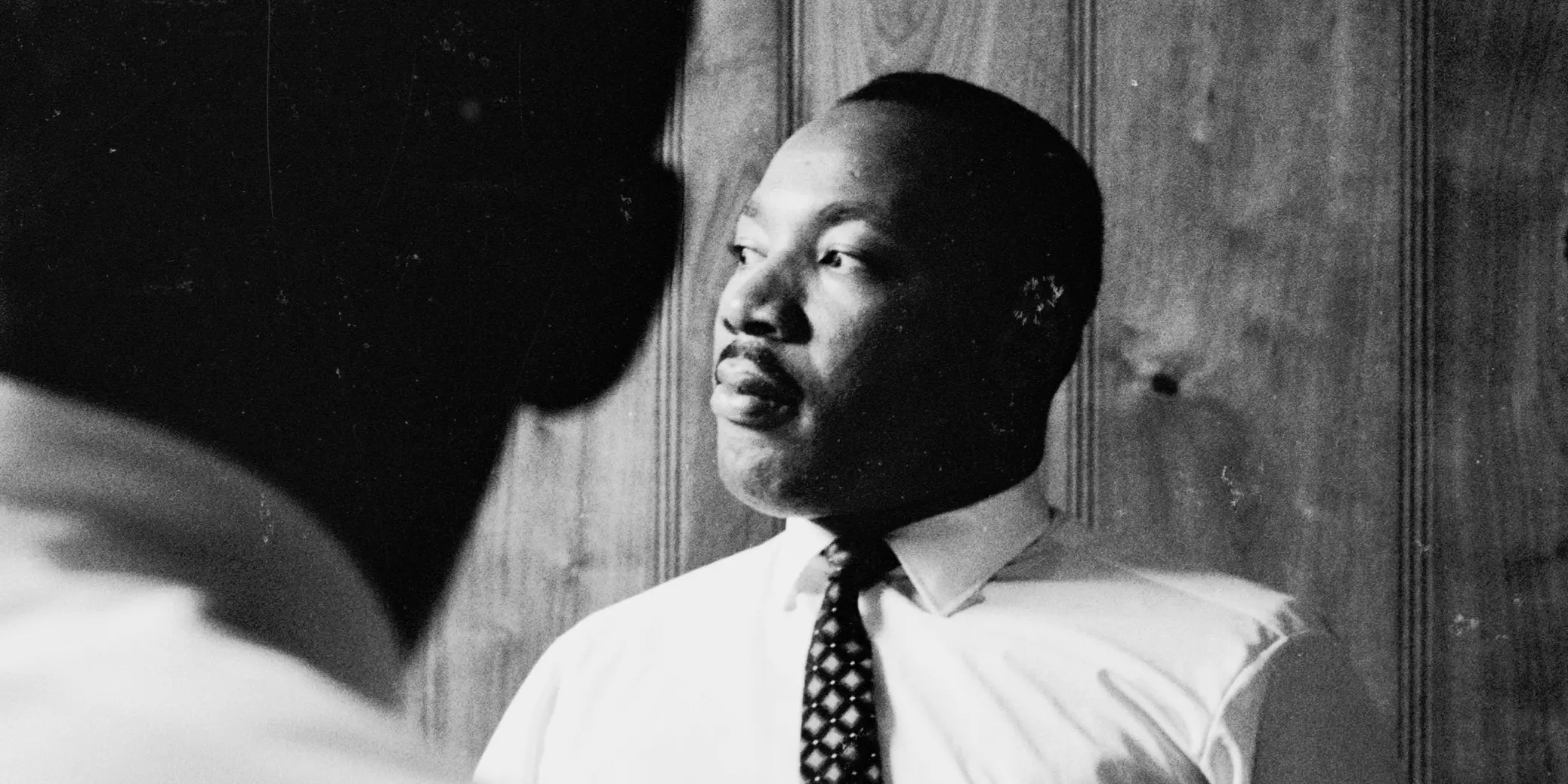Martin Luther King Jr. Delivers 'I Have a Dream' Speech

Martin Luther King Jr. delivering his 'I Have a Dream' speech at the March on Washington in 1963.
What Happened?
The March on Washington for Jobs and Freedom on August 28, 1963, was one of the largest civil rights demonstrations in American history, uniting over 250,000 people of diverse backgrounds in the nation’s capital. The demonstrators called for voting rights, equal opportunity, and an end to racial segregation and discrimination.
The event’s final speaker was Martin Luther King Jr., who stood before the towering statue of Abraham Lincoln and declared that a century after the Emancipation Proclamation, African Americans were 'still not free.' While his prepared remarks were powerful, it was his impromptu turn to the refrain 'I have a dream' that transformed the speech into one of history’s defining orations.
King envisioned a future where the 'sons of former slaves and the sons of former slaveowners' could sit together in brotherhood, where his own children would be judged not by the color of their skin but by the content of their character. His words echoed through the crowd and across the globe, cementing his role as the moral voice of the civil rights movement.
The March on Washington helped galvanize public support for civil rights legislation. Within a year, the 24th Amendment banned poll taxes, and the Civil Rights Act of 1964 outlawed racial segregation and workplace discrimination. In 1964, King was awarded the Nobel Peace Prize for his commitment to nonviolence and justice.
But King’s dream remained unfinished. Millions of Black Americans—and other marginalized groups—continued to face systemic racism, voter suppression, and economic inequality. His assassination in 1968 cut short his life, but not his legacy. Today, his 'dream' remains both an inspiration and a challenge, urging America to keep striving toward the ideals of equality and freedom.
Why It Matters
The 'I Have a Dream' speech was more than a moment—it was a moral reckoning. By linking civil rights to America’s founding ideals, King challenged the nation to see racial equality not as charity, but as justice. His words endure as a reminder that freedom is unfinished work, and that dreams only become reality when people organize, march, and demand change.
?
What were the main goals of the March on Washington for Jobs and Freedom?
Why did the 'I Have a Dream' section of King’s speech resonate so powerfully?
How did the March on Washington influence the Civil Rights Act of 1964?
What connections can we draw between King’s vision and today’s struggles for racial and economic justice?
How does King’s use of biblical and patriotic language strengthen the speech’s impact?
Dig Deeper
Watch Martin Luther King Jr.’s iconic 'I Have a Dream' speech, delivered at the March on Washington in 1963, as he calls for an end to racism and a vision for a more just America.
This video celebrates the life of Dr. Martin Luther King Jr., an American hero who changed the world with his leadership, peaceful protest, and fight for racial equality.
Related

The Civil Rights Movement: Struggle, Solidarity, and Social Change
From classrooms to courthouses, buses to bridges, the Civil Rights Movement reshaped America’s laws — and its conscience.

The Voting Rights Act of 1965: Enforcing the 15th Amendment
How a landmark law transformed voting access in the South and gave real force to the promises of the 15th Amendment.

Universal Suffrage in the United States
The right to vote wasn’t handed to everyone—it was fought for, over centuries, by people demanding that democracy actually mean everyone has a voice.
Further Reading
Stay curious!
